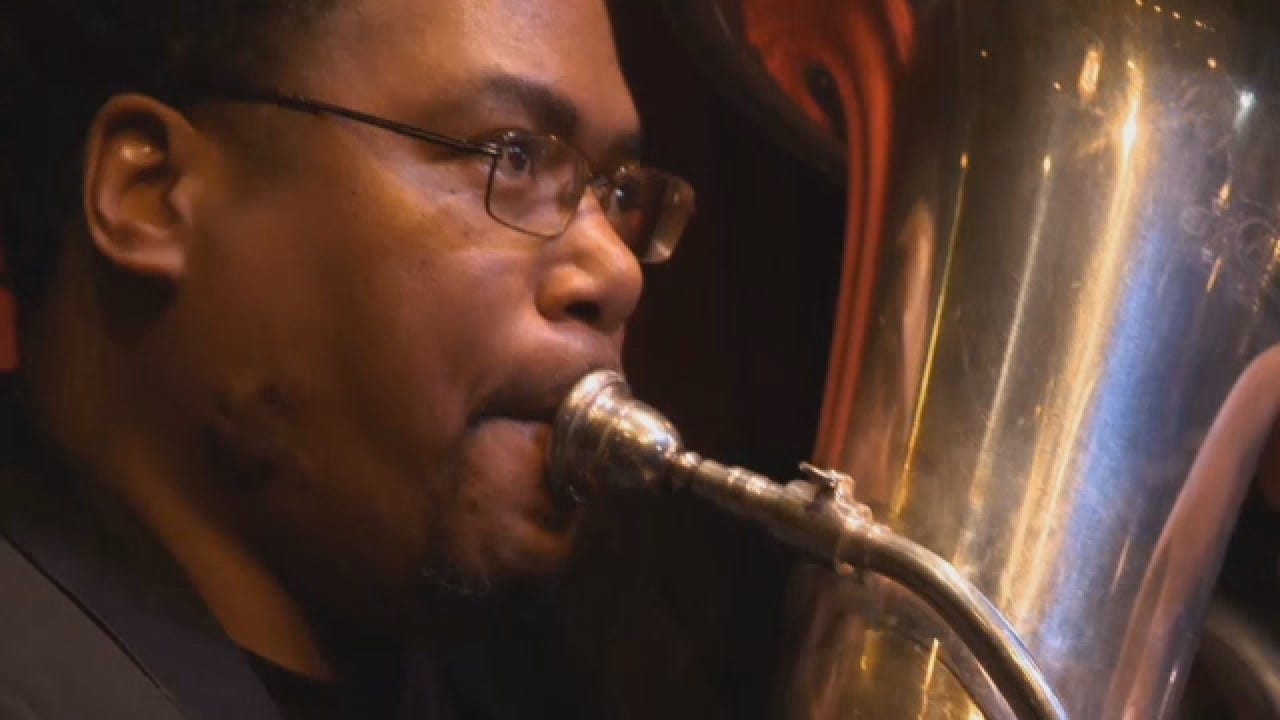Tuba Player Finds Harmony After Overcoming Homelessness
Tuba player Richard White knows just how to make his deep pitched brass instrument growl. But very "few" know the story behind "how" the Baltimore native made it to the big stage.Wednesday, March 6th 2019, 11:12 am
Tuba player Richard White knows just how to make his deep pitched brass instrument growl. But very "few" know the story behind "how" the Baltimore native made it to the big stage.
"Some nights, unfortunately, I couldn't find my mom. So I would go in abandoned houses or find a piece of cardboard, sleep under trees," White said.
At the age of 3, White was homeless, living on the streets of inner city Baltimore. His mother, an alcoholic, struggled to keep a roof over their heads. A fountain was a lifeline, providing a place for him to get water and even bathe.
Then, a miracle. He was found alone in a doorway during a snowstorm. But White was later adopted by Vivian and Richard McClain who gave him more than just a home, they gave him a passion for music. He loved it so much that he applied for the Baltimore School for the Arts, run by Chris Ford.
"He comes in, he had a broken hip at the time so he's got crutches, he's got this plastic sousaphone wrapped around him," Ford said.
"I said, 'I'm here to audition,'" White said. "He said, 'Oh really? Auditions were yesterday.' And I said, 'But I'm here now.'"
Ford said there was something "compelling" about White that was worth taking the chance.
White, who couldn't even read music at the time persevered. He became the first African-American to earn a doctorate in music in tuba performance and has performed for audiences all over the world.
His life story has now been made into a documentary film called "R.A.W. Tuba," after his initials, Richard A. White. He continues to perform and teach, at the University of New Mexico.
"The thing I'm most proud about is that every day I get to go to work and give back and make a difference in a kids life, because that's what happened to me," White said.
It doesn't get more raw than that.
More Like This
March 6th, 2019
September 29th, 2024
September 17th, 2024
Top Headlines
November 24th, 2024
November 24th, 2024
November 24th, 2024
November 24th, 2024










